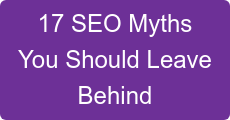 Over the last year we've noticed a decrease in correlation to website optimization and ranking results. This really isn't surprising if you take into consideration how Google has been operating since 2012.
Over the last year we've noticed a decrease in correlation to website optimization and ranking results. This really isn't surprising if you take into consideration how Google has been operating since 2012.
2012 - The year everything changed for Search Engine Optimization (SEO)
Anyone working on SEO with technical expertise in 2012 saw the fundamental shift in how their tactics affected search engine results. At that time, industry practices revolved around optimizing websites with title tags, headings, metadata and many other things on the website itself. In addition, experts would build inbound links to websites because that was the strongest off-site signal that your website was relevant; it was also the easiest to exploit. optimizing a website in those ways was a significant factor in boosting search engine ranking results but that began to change in 2012 when Google changed its algorithms.
Well of course industry experts would exploit a technique as soon as it was discovered
In the years leading up to 2012, so many companies emerged and started manipulating search engine rankings that Google declared war. I say this because if Google was able to find unnatural links to a website, the website would get penalized from search results. This was done by the algorithm itself or by manual spam actions where an actual person looked at your data and made the call.
The fallout was huge as large companies who employed the most aggressive SEO companies started to get hit hard. After the release of Penguin and Panda in that year, the frequency of updates went from one or two a year to many times per month. This was to make adjustments to their algorithm which was causing so much havoc. I believe the backlash caused Google to walk back a lot of their original penalties.
Doom and Gloom, not so much
Google's threats and eventually releases caused a lot of problems for people. Recovering from a Google penalty is long and hard and hiring someone who knows how to fix a penalty is expensive. From what I've seen, you never fully recover as your domain will always have that black mark.
After the first initial hits, we saw a decline in penalties as businesses stopped hiring black hat firms. What has emerged is what I call "under the radar SEO." This is building links by hand but in a way that disguises the unnatural occurrence. Search engines are programs and can only detect so much. So if you are still trying to game the system it is possible if done expertly.
Why under the radar SEO isn't a good idea
To understand why this strategy isn't the best it is necessary to understand how buyers are finding businesses these days. To look at this, you simply just need to think about how you or I search for products and services. Do you really search for a plumber in your town by going to Google and typing "Plumber in {my town}"? I would guess not. If you do you'll get a barrage of results that don't really help you figure out the best plumber.
You'll likely go to a lot of other places like Facebook to get a recommendation or Yelp to see reviews of that business. There are at least ten different places I'll go before I even start to sort out my short list of plumbers.
A buyer will visit 15 websites before making a purchase (or something like that)
Online shoppers are sophisticated, enabled, smart and have little patience. In order to maximize your potential business you just need all the parts working together properly. This means you need some sort of way to track the most important things that affect your online reputation.
Website Optimization
Another trend from the updates has been a diminishing factor when optimizing websites for search engines. It is counter intuitive because Google tells us how to optimize our websites in Search Console, but doesn't really use it as a ranking factor. It is more related to building a solid foundation so you don't get hurt by having a badly built website.
This is a tough situation for us because we can't prove the immediate effectiveness of website optimization. Here's a great study on the correlation of optimizing a website and search results.
Making sense of it all
To really understand what is going on we need to think like Google. Their goal is to deliver the best results searchers are looking for NOT the best optimized website in search results. So if website A) is not optimized but has great content and website and B) is fully optimized but lacks great content, who do you think will win the battle?
Search engine optimization is still alive but changing dramatically. What you did last year may have no affect or hurt your rankings. See how these myths create more confusion and problems for businesses.




Let Us Know What You Thought about this Post.
Put your Comment Below.